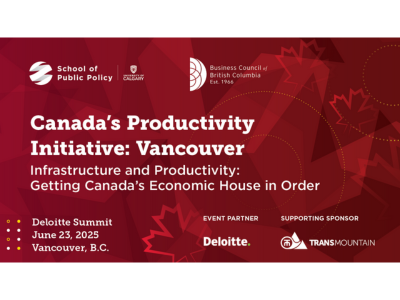China Rewards and China Punishes….What Lessons Can Canada Learn from the Meng Wanzhou Affair?
Lately there have been calls by political leaders and others for a “total reset” (or a “careful reboot”) of Canada’s relations with China as a result of China’s reaction to the arrest of Huawei senior executive Meng Wanzhou in Vancouver in early December. She was arrested pursuant to a U.S. warrant seeking her extradition to face charges related to violations by Huawei of U.S. sanctions against Iran. The retaliatory arrest of Canadians Michael Kovrig and Michael Spavor on spurious national security grounds, combined with a series of trade actions designed to impede the flow of Canadian exports to China (not to mention outspoken comments by the Chinese ambassador to Canada accusing Canada of a policy of “white supremacy” and “Western egotism” for fulfilling its legal obligations under the Canada-U.S. Extradition Treaty) have brought Canada-China relations to their lowest ebb since the establishment of diplomatic relations in 1970.
We have seen commentators claim that China is remaking the rules of the world order, and is tacitly demanding that Canada surrender its values to an authoritarian state. Others have chimed in with Soviet-era suggestions such as expelling Chinese diplomats and closing consulates. That’s a really good way to drive the relationship down the drain, and certainly would not do much for the Canadian hostages. Assuming, however, that we do need to re-evaluate the basis of our relationship with China, what would that reboot look like?
According to Andrew Scheer it would include withdrawal of Canada’s investment in the Asia Infrastructure Development Bank (AIIB), to which Canada contributed a $250 million share (giving us approximately 1% of the voting rights) when we belatedly joined the institution in 2017, launching a WTO case against China’s tactics of blocking canola exports allegedly on phyto-sanitary grounds, more diversification of Canadian trade, appointment of a permanent ambassador to Beijing after John McCallum’s forced resignation, and blocking Huawei from participating in future 5G networks in Canada.
Some of those actions might give Canadians a sense of satisfaction that the government is “doing something” to strike back against China but the reality is that we have to be careful, as the Chinese saying goes, not to “drop a rock on our own foot”. There is no question that China’s response to Meng’s arrest is designed to “punish” Canada. Given the likelihood that the extradition process will continue for some time, we can probably expect that China will take further action. China has a well-established track record of “reward and punishment” when it comes to dealing with other nations, particularly smaller and more vulnerable ones. Canada is not the first nor will it be last to suffer.
Taking actions to indicate displeasure with another country’s policies is of course not restricted to China, but China personalizes it by taking “hostages” such as Kovrig and Spavor, and before them Kevin and Julie Garratt. Other countries take trade actions which they think will advance their interests or force another country to take certain actions. The U.S. “national security” tariffs on steel and aluminum (recently lifted for Canada and Mexico, subject to certain conditions) imposed on Canada and other U.S. allies as well as countries like China are one such example. China is also not the only country to employ various non-tariff measures to slow down imports, and inflict pain on exporters and the government of a trading partner. It is unfortunately an all too regular occurrence.
While China, like other countries, “punishes”, it also “rewards” countries for adopting policies that Beijing wants to advance. A good recent example of this is what is happening in New Zealand. New Zealand was one of the first western countries to conclude a Free Trade Agreement with China, in which it accorded China “market economy status”, a key goal of Beijing. New Zealand’s trade with China, especially in agricultural products such as dairy, took a sharp spike upwards. Then the government changed in New Zealand, and Wellington’s position was perceived to be less open to China. Restrictions were placed on land purchases in New Zealand by foreigners (not directed specifically at Chinese capital, but that is where most of the money for land purchases was coming from), and New Zealand’s intelligence agency strongly recommended a ban on Huawei equipment in the country’s 5G development. While there is some lack of clarity as to exactly what direction New Zealand’s government gave its telco providers, it has been widely reported that New Zealand, like Australia and the U.S., has “banned Huawei”.
That’s when things began to go south for the New Zealand-China relationship. China started a drip-drip of actions to indicate its displeasure, including making life difficult for the national carrier Air New Zealand and squeezing the flow of Chinese tourists to New Zealand. This year is New Zealand’s “Year of Tourism” for Chinese tourists. That promotion was delayed and threatened to be cancelled, although it finally did launch just as New Zealand Prime Minister Ardern rescheduled her visit to Beijing. (Ironically, 2018 was Canada’s “Year of Chinese Tourism”). New Zealand also found that China was dragging its feet on starting negotiations to update the 2008 FTA between the two countries, which New Zealand hoped would improve access for its all-important dairy industry. Then New Zealand found a quid pro quo, and agreed to join Beijing’s ambitious “Belt and Road Initiative” (BRI). Suddenly the way was cleared for the negotiations to begin. The lesson here is to find areas where you can bend without breaking. Try to find a balance of benefits without surrendering core interests. It seems to be working for New Zealand.
Another example of Chinese punishment is the treatment accorded to Lotte, the Korean conglomerate that operated a number of supermarkets and retail malls in China. After Lotte agreed to provide land to the Korean government for the installation of a U.S. high level missile defence system (known as THAAD) that Beijing opposed, the Chinese authorities put the squeeze on Lotte, closing a number of stores for alleged sanitary and code violations and encouraging a consumer boycott. Lotte was in effect forced out of China and has now sold its holdings to a Chinese company and exited the Chinese retail market. It was not just Lotte that suffered. China turned off the tap of Chinese tourists to South Korea and effectively banned popular South Korean content from its airwaves (while denying that any such ban existed). China rewards and China punishes. That is how the game works when you have leverage.
How South Korea handled the dispute is interesting. Korea hunkered down and didn’t budge on THAAD. The fact that it had a Free Trade Agreement with China possibly helped as this may have blunted some potential Chinese trade retaliation. As for the other measures, Lotte took a hit and moved on. Three years later Sino-Korean relations are thawing. There is talk of a tour of China by a major South Korean pop group (China is good at using “people-to-people” diplomacy to send signals).
This brings us back to Canada-China relations, which used to be considered “warm” until the Meng affair broke. Weren’t we supposed to be “friends” with China? What about that reservoir of goodwill built up over the years, going back to the early days of wheat sales?
It is true that the language of “friendship” has been consistently used by both sides to grease the wheels of the relationship. When Canada and China first established diplomatic relations in 1970, Canada suddenly discovered Dr. Norman Bethune, a Canadian Communist who had been memorialized by Mao Zedong in one of his essays which became part of the “little red book” carried by just about all Chinese during the Cultural Revolution. The Chinese were trying to find something in common that they shared with Canada, and latched onto Bethune while Canada was only too willing to oblige, even going so far as to purchase Bethune’s family home in Gravenhurst and making it a national historic site. This is part of the stuff and substance of diplomacy. It doesn’t have much to do with friendship as we would normally define it.
The current government has been accused by some commentators of being “naïve” in managing relations with China, and in believing that China and Canada had some sort of special relationship. There are few individuals who have a long relationship with China who really think that there is a true basis of “friendship” with China. I am reminded of the dictum of Lord Palmerston who famously declared that England has no eternal friends and no eternal enemies, just eternal interests. That is how China conducts its relations with the world, and is how Canada must conduct itself. Given that dictum to serve our own interests, should we “teach the Chinese a lesson” by taking various retaliatory actions? Now we know that if you do business with China you are vulnerable to pressure and retaliation, is the answer to not do business with China? That is hardly in Canada’s interests.
Unfortunately the Meng affair is likely going to take many months, maybe years, to resolve and until it is, Canada-China relations will be held captive to it and the Canadian hostages in China, sadly, will continue to suffer. The ultimate solution lies in Washington and Canada needs to lean hard on the Americans to fix this problem. A plea bargain with Huawei, punishing the company but avoiding jail time for Ms. Meng, would suit everyone’s interests. That is not an impossible scenario as part of a larger U.S.-China “peace package”. After that, Canada and China will need to pick up the pieces of the relationship, or rather Canada will have to pick up the pieces that China has broken. We will need to continue to do business with China and engage them on the world stage whether we like them or not. By the same token, China will understand that normalizing relations with Canada is in its interests. Trade will resume. Canola and pork producers will welcome a return to the Chinese market, although they will probably be a bit more wary about putting too many eggs into one basket.
Putting China on notice at the WTO that we intend to pursue our WTO rights could be useful and will start the wheels grinding, perhaps eventually leading to a negotiated settlement of the canola issue, if the Chinese don’t lift the ban before that. Process and engagement is important. Diversifying markets to find customers other than the U.S. and China will be critical. The work that has been done on the Canada-EU Partnership Agreement and the Comprehensive and Progressive TPP will help in this regard. Withdrawing from the AIIB would not achieve much, and in fact would cut off a useful channel which allows Canada to participate in the governance of the institution and in development projects in Asia. And sometime soon, no doubt we will have a new ambassador in Beijing. Then there is Huawei and 5G. Let’s make a sensible decision that reflects our own interests, both security and economic, and not those of someone else. And let us always remember, that as the smaller partner we will be the recipient of China’s reward and punishment policies, just as we are with the U.S.– although in the case of the U.S. there are more varied power centres that allow for some offsetting influence to be generated.
It is in Canada’s interests to find areas where our interests coincide with China’s, while trying to minimize areas where our interests do not coincide. Being caught between the U.S. and China is not a pleasant place to be but is inevitable for a middle power. We don’t have to surrender our values but we do need to be mindful that ineffective criticism of China’s internal policies will not only not lead to change, but will potentially damage Canadian interests. Falling into a Cold War mentality, seeing Chinese “Reds Under Beds” everywhere, and accusing anyone who tries to bridge the gaps between the two countries of “naïvité”, or worse, will not lead to positive outcomes for Canada. While dialogue and quiet diplomacy have not always worked, and are perhaps less effective today given a strident rather than placatory Chinese leadership, such an approach is still better than scolding or other overt acts that China will perceive as gratuitous attacks on its role in the world. Once this current storm passes, and it will, we will need to continue to use the language and methods of diplomacy in order to find areas of common interest with China.
Relations between China and Canada are unlikely to ever be the same, although they will return to a greater degree of equilibrium. While they are not going to get better quickly, we need to take a long term view, as do the Chinese, and prepare for a world where our immediate bilateral irritants have been resolved (hopefully with an early return to liberty of Michael Kovrig and Michael Spavor). A total reset involving a winding down of the relationship or initiating escalating retaliatory measures is not sensible and not in Canada’s interests. A careful re-evaluation is a more likely prospect. We don’t need to be friends with China (although at some point in the future, I am sure leaders will be raising a glass of maotai to Canada-Chinese friendship), but we do need to pursue single-mindedly Canada’s interests. And unless the world changes significantly, those interests are going to include a productive realpolitik relationship with China across a range of issues of interest to Canadians; trade, climate change, health, global governance, the Arctic, human rights, and so on. It won’t be easy but we have no choice.
Let’s be careful not to succumb to the temporary satisfaction of lashing out—and in the process dropping that rock on our own foot.
Hugh Stephens is an Executive Fellow with The School of Public Policy of the University of Calgary. The views expressed are his own.


